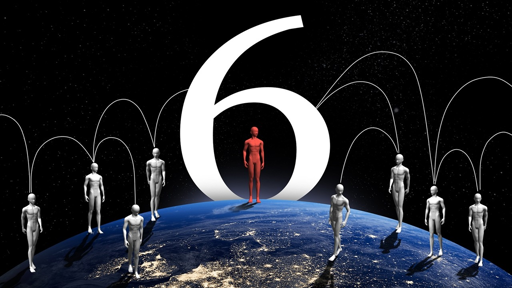[Derek] When Watts dug deeper, he realized that the network structure did matter. In the more clustered networks, people were more likely
30:27 to copy each other. So if by chance someone started out cooperating, then everyone would cooperate.
30:34 But it was equally likely that someone would start out by defecting, in which case everyone else would defect.
30:40 And over all the games they played, these two effects canceled each other out, which is why it seemed like
30:46 the network structure didn’t matter. - [Duncan] It’s sort of on a knife edge, right? Where like one person does something selfish
30:54 and everything goes south. In another world, everybody kind of holds it together
31:00 and everything goes well. It’s crazy that the world could be like on a knife edge like that, you know,
31:06 could tip one way or the other, kind of just depends on how someone gets out of bed that day.
31:11 But then Watts realized something. See, in real life, you can choose who you hang out with.
31:17 So he reran the experiment allowing players to change who they were playing with. And this time he used the prisoner’s dilemma
31:23 so that players could easily identify the defectors. - [Derek] And the finding was clear, the more you allowed players
31:30 to choose who they were playing with, the more likely they were to cooperate


